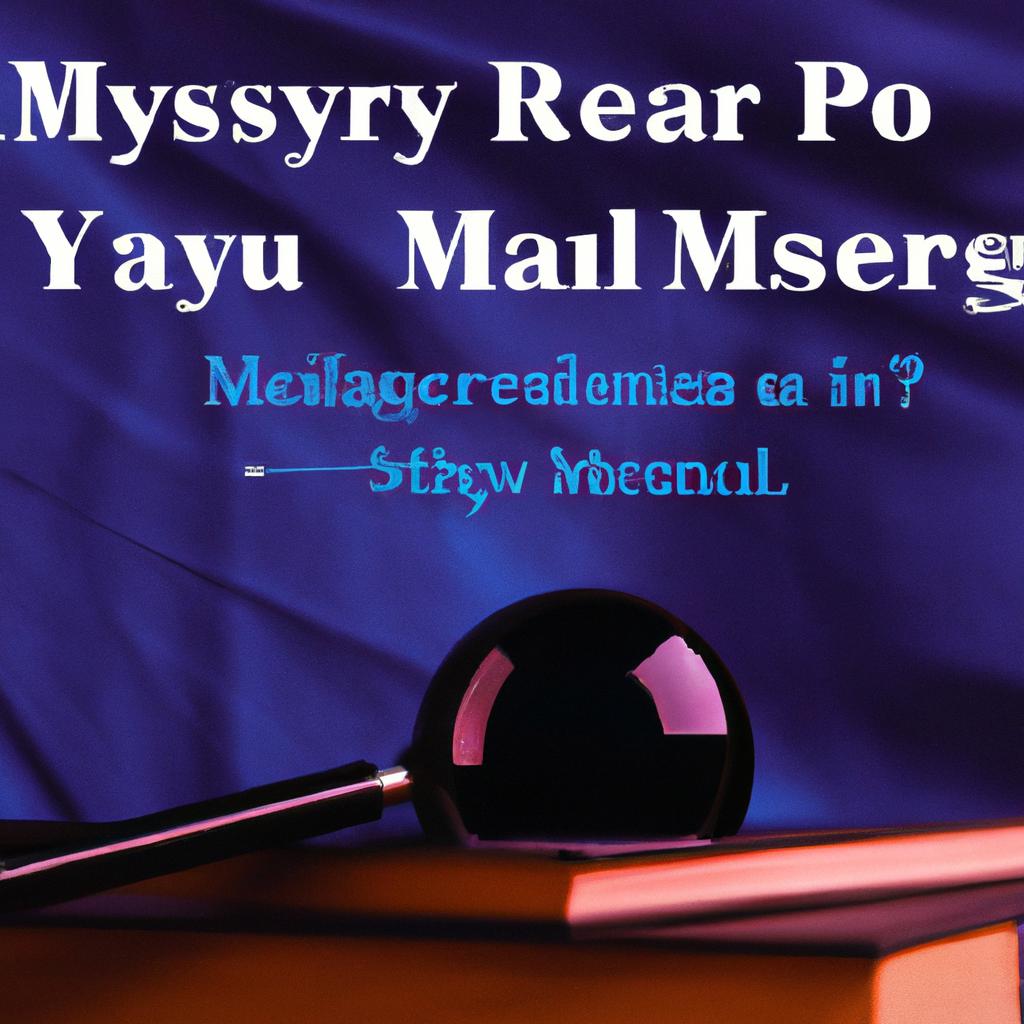When someone we care about passes on, their will acts as a guide for the allocation of their assets and the resolution of their affairs. However, the execution of a will isn’t always a straightforward task. A frequently asked question is whether a will must undergo probate. This article delves into the complexities of probate and when it might be necessary for a will to go through this legal procedure. By grasping the subtleties of probate, you can ensure the smooth and efficient execution of your loved one’s final wishes.
Deciphering the Probate Procedure for Wills
When a loved one departs and leaves a will, many people question if the will must undergo probate. Probate is the legal procedure by which a deceased person’s assets are allocated to their heirs and beneficiaries. In most instances, a will does need to go through probate for the legal transfer of assets.
During the probate process, the court supervises the allocation of the deceased person’s assets as per the instructions in the will. This process can involve numerous steps and may take several months to finalize. It’s crucial to note that not all assets are subject to probate. Assets held in a trust, for instance, usually do not need to go through probate.
It is advisable to seek guidance from a probate attorney to navigate the process and ensure everything is handled correctly. The attorney can assist you in gathering the necessary documents, filing the appropriate paperwork with the court, and dealing with any challenges that may arise during probate. While the probate process can seem overwhelming, professional assistance can make the process smoother and less stressful for all parties involved.
Widespread Misunderstandings About Probate and Wills
A common misunderstanding is that a well-drafted will does not need to go through probate. However, the reality is that most wills do need to undergo the probate process, which is the legal procedure of validating a will in court. During probate, a judge will ascertain the validity of the will, appoint an executor to fulfill the deceased person’s wishes, and distribute assets to beneficiaries.
One of the reasons a will needs to go through probate is to ensure the deceased person’s debts are settled before assets are distributed to heirs. Additionally, probate provides a legal framework for resolving any disputes that may arise among beneficiaries or other interested parties. While probate can be a lengthy and costly process, it is often necessary to ensure the deceased person’s final wishes are properly executed.
It’s important to note that certain types of assets may not need to go through probate, such as assets held in a trust, joint tenancy property, or assets with designated beneficiaries. However, these exceptions are not applicable to all situations, and it is always best to consult with an attorney to determine whether probate is necessary for a specific estate.
Probate Alternatives for Estate Distribution
When it comes to estate distribution, many people assume that probate is the only option. However, there are several alternatives to probate that can make the process more streamlined and efficient for all parties involved.
One alternative to probate is creating a living trust. A living trust allows assets to be transferred to beneficiaries without going through probate, saving time and money. Another option is joint tenancy with right of survivorship, where assets are automatically passed on to the surviving owner without the need for probate.
Additionally, some states offer simplified probate procedures for smaller estates, bypassing the lengthy and costly traditional probate process. It’s important to explore all your options and choose the best one for your situation to ensure a seamless estate distribution process.
Guidelines for Simplifying the Probate Process
When it comes to the probate process, many people wonder if a will is required to go through probate. While it ultimately depends on the specific circumstances, having a will can significantly streamline the probate process. Here are some tips to help make the probate process more efficient:
- Organize important documents: Gather all relevant documents, including the will, financial statements, and other legal paperwork.
- Communicate with beneficiaries: Keep beneficiaries informed of the probate process to prevent any misunderstandings or conflicts.
- Hire a probate attorney: Consider hiring a probate attorney to guide you through the legal complexities of probate and ensure everything is handled properly.
| Advantages of Probate: | Disadvantages of Probate: |
|---|---|
| Ensures assets are distributed according to the deceased’s wishes. | Can be time-consuming and expensive. |
| Provides a legal process for resolving disputes among beneficiaries. | May lack privacy as probate records are public. |
By following these tips and being proactive in the probate process, you can help ensure a smoother and more efficient experience for all parties involved.
The Wrap-Up
In conclusion, understanding the probate process can be challenging, but it is a necessary step in ensuring that a deceased individual’s wishes are carried out. While not all wills need to go through probate, it is important to consult with a legal professional to determine the best course of action for your specific situation. By taking the time to plan ahead and properly execute a will, you can help ease the burden on your loved ones and ensure that your final wishes are honored. Remember, when it comes to probate, knowledge is power.

Unraveling the Mystery: Does Your Will Really Need to Go Through Probate?
Understanding Probate and Wills
Probate is a legal process that validates a deceased person’s will, settles their debts, and distributes their assets to the rightful heirs. The purpose of probate is to ensure that the deceased person’s wishes are carried out in a fair and lawful manner.
Do All Wills Need to Go Through Probate?
Not all wills need to go through the probate process. Whether or not a will needs to go through probate depends on various factors, including the size of the estate, how the assets are titled, and state laws. Here are some scenarios where probate may be necessary:
- If the deceased person owned assets solely in their name
- If the deceased person had debts that need to be settled
- If there are disputes among the heirs over the distribution of assets
Benefits of Avoiding Probate
Avoiding probate can save time and money for your heirs and beneficiaries. Probate can be a lengthy and expensive process, tying up assets and causing delays in distributions. By using strategies such as creating a living trust, designating beneficiaries on accounts, or using payable-on-death designations, you can bypass probate and streamline the transfer of assets.
Practical Tips to Avoid or Streamline Probate
Here are some practical tips to avoid or streamline the probate process:
- Create a living trust to transfer assets outside of probate
- Use beneficiary designations on bank accounts, retirement plans, and life insurance policies
- Jointly own property with rights of survivorship
- Create a payable-on-death designation for bank accounts
- Gift assets to loved ones during your lifetime
Case Studies
Let’s take a look at two different scenarios to illustrate when probate may or may not be necessary:
| Scenario | Probate Required? |
|---|---|
| Scenario 1: Deceased had a living trust with all assets transferred | No, probate is not required |
| Scenario 2: Deceased had assets solely in their name with no beneficiaries | Yes, probate is required |
Firsthand Experience
Many individuals who have gone through the probate process can attest to the challenges and delays it can entail. By planning ahead and taking steps to avoid or streamline probate, you can make the process easier for your loved ones and ensure your wishes are carried out efficiently.
Wrapping Up
In conclusion, not all wills need to go through probate, but understanding the process and how to avoid it can save time and money for your heirs. By utilizing estate planning tools and strategies, you can make the probate process smoother and more efficient. Consider consulting with an estate planning attorney to create a plan that best fits your needs and circumstances.


